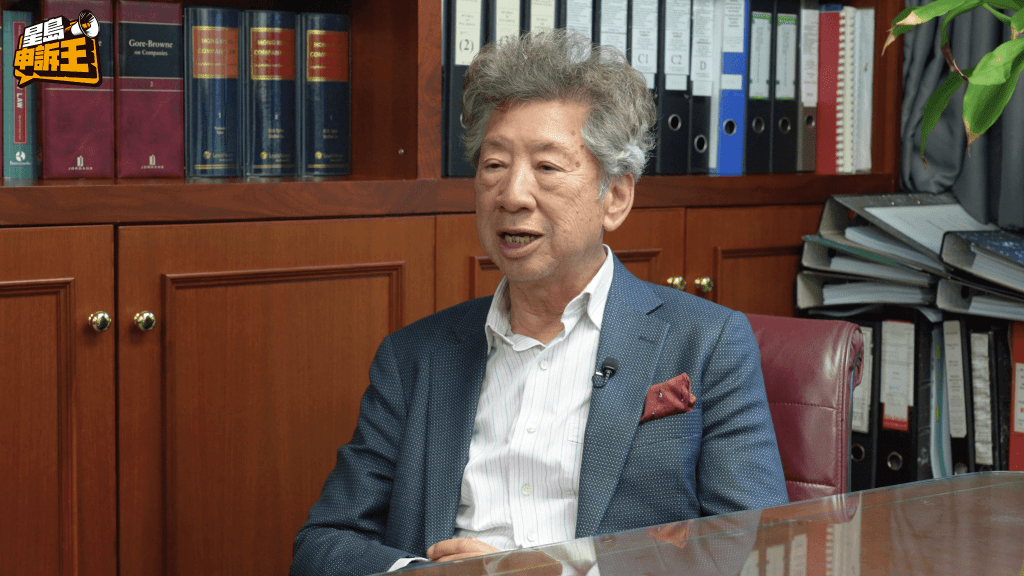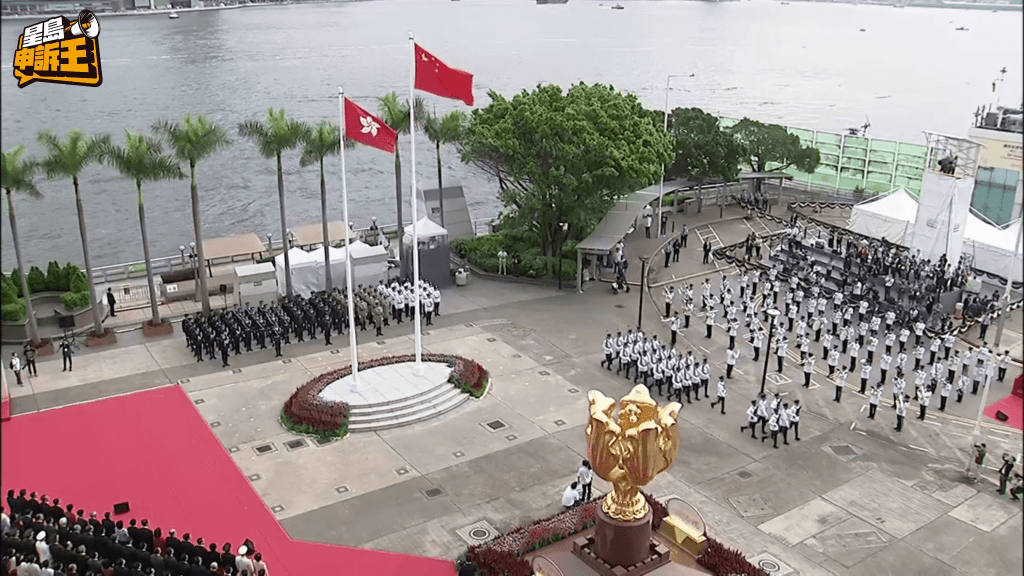Sing Tao Probe | Students take on quiz about the National Flag, National Anthem and Hong Kong National Security Law
Every night before the news broadcast or during major events, there will be a flag-raising ceremony and or the national anthem will be played. Yet in daily life, many citizens still have questions about the National Flag and National Emblem Ordinance and the National Anthem Ordinance, worrying they might unknowingly break the law.
Sing Tao Probe visited schools and challenged secondary students with 10 scenario-based questions to gauge their understanding of these three laws. Senior Counsel and Executive Council member Ronny Tong Ka-wah was invited to clarify students’ doubts.
Sing Tao Probe devised 10 hypothetical scenarios that may involve the National Flag and National Emblem Ordinance and the National Anthem Ordinance, and national security law, asking students to match them with the correct legal implications. The scenarios include:
- Failing to stand solemnly when the national anthem is played at an official public ceremony?
- Deliberately singing incorrect lyrics when the anthem is played during a school assembly?
- Sharing articles by overseas fugitives advocating Hong Kong independence on social media?
- Using the national flag in trademarks, registered designs, or commercial advertisements?
- Remixing the national anthem or its lyrics and posting it online?
- Discarding a used national flag in a public trash bin?
- Promoting or praising terrorist activities online?
- Donating money online to organizations plotting to split the nation?
- Calling for foreign sanctions against central or Hong Kong government officials on social media?
- Turning one’s back on the flag during a flag-raising ceremony?
See how the students tackled these 10 scenarios (answers included):









Students aced the challenge proving effective education at school
The participating students were in Form 2 and Form 4. Most correctly matched each scenario with the relevant law, having learned about them through classes or family discussions. A Form 4 student mentioned that their Civic Education teacher explains these laws, and guest speakers are often invited to discuss national matters.
Would singing the national anthem off-key break the law?
While students understand the ordinances and national security law from textbooks, they still have practical concerns—like whether remaining silent, misremembering lyrics, or singing off-key during the anthem at school assemblies would violate the law.
Some even wondered if they should stand solemnly when the anthem plays on TV.
Ronny Tong clarified that the formal names of these laws are the National Anthem Ordinance and the National Flag and National Emblem Ordinance. Both emphasize respect for national symbols.
However, not knowing the lyrics, forgetting them, or singing off-key does not necessarily indicate disrespect—standing solemnly suffices.
He added that failing to stand in official settings (e.g., sports events, formal ceremonies) could be deemed disrespectful and potentially illegal.
But in unofficial situations, like hearing the anthem on TV at home, standing is not required. "You don’t have to drop your chopsticks mid-meal and stand up—that would be excessive!"
How to properly dispose of a National Flag?
Some students were unsure how to handle flags distributed at public events. "I’ve thought about storage, but not disposal—do we have to melt it down?" Others confused the National Anthem Ordinance and the National Flag and National Emblem Ordinance since both often coincide.
Tong explained that flag-raising demands solemn respect—similar to listening quietly when a teacher speaks. Discarding or tearing small flags in public bins is considered disrespectful. Instead, they should be stored properly or returned to teachers or organizers for disposal.





Does liking a parody count as support?
Students are also worried about online exposure. "If I ‘like’ a remixed anthem or altered flag image, does that mean I support it?" "If I click on a potentially seditious post, am I breaking the law?"
Tong cautioned that sharing or endorsing provocative content could imply endorsement, risking national security law violations.
Merely viewing out of curiosity may not be illegal—unless there’s intent to support harmful acts. However, financially supporting such platforms (e.g., paid subscriptions) raises suspicion and should be avoided.
The National Anthem Ordinance and the National Flag and National Emblem Ordinance focus on respect, while the national security law protects national security—a defensive measure against threats before they materialize.
Violations of the latter carry far harsher penalties (up to life imprisonment), whereas disrespect under the former laws may result in fines (up to HK$50,000) or three years’ imprisonment.
Tong reassured that most citizens need not worry if they live normally, avoid suspicious actions, and understand legal boundaries. "The national security law targets extreme acts—ordinary people won’t cross that line."



